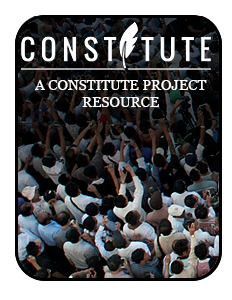Resources
Displaying 1 - 5 of 8Constitution of Mozambique 2004 (rev. 2007)
The constitution was approved by the National Assembly.
Sustainable Use of Natural Resources for Environment and Econ. Dev.-SUNREED - CNVP Sustainable Use of Natural
General
The overall objective of the concept proposal “Sustainable Use of Natural Resources for Environment and Economic Development, shortly SUNREED” is to increase the sustainable use of private forest resources and value chain development on renewable energy based on wood biomass (district heating system) that will generate a higher volume of forest goods and income opportunities to rural households. The project proposals goal will be achieved through the following two outcomes: Outcome 1: Private forest owners have increased value and sustainability of the forest stand ecosystems. Outcome 2: Value chains actors have increased wood biomass production, processing and final use. The implementing partner is CNVP Foundation. The project will be focused on addressing key constraint faced by the private forest owners and provide support to them in collecting evidence and advocating for policy and legal changes with public institutions in favor of private forestry.
Objectives
The overall objective of the program is: Poverty reduction for both women and men in forest areas through additional income and jobs from sustainably managed forests including wood biomass, Medicinal and Aromatic Plants (MAPs), Non-Wood Forest Product (NWFPs) and carbon backed up by an enabling policy environment and supported by sustainable service provision by National Association of Private Forest Owners (NAPFO) and Association of Private Forest Owners (APFOs). To reach this objective the following outputs and outcomes have been proposed: Outcome 1: Increased incomes for Private Forest Owners (PFO) including women as a result of improved forest management and engagement in NWFP / MAP market systems There are 4 outputs that relate to this outcome: Output 1.1: Increased and diversified production from sustainably managed forest land; Output 1.2: Enhanced and sustainable service delivery by APFOs and the NAPFO to their members; Output 1.3: Women and youth living in rural areas engaged in forest-related market systems; Output 1.4: Enabling policy environment promoted, including a road-map for developing a carbon market. Outcome 2: A market system for wood biomass (wood chips), providing incentives for proper forest management and income generation for PFOs, and leading to reduced greenhouse gas impact Interventions that will lead to the realisation of this outcome can be grouped into 4 key outputs: Output 2.1: Output 2.1 Development of a national roadmap on wood biomass production, marketing and use Output 2.2: Establishment of four pilot wood biomass collection points supported; Output 2.3: At least 10 heating systems based on wood biomass promoted; Output 2.4: Increased information, capacities and learning on wood biomass market systems.
Mauritania - Economic Reforms and Diversification Support Programme - Phase II (PAREDE II)
General
The proposed operation is the second phase of a programme-based budget support operation to the Islamic Republic of Mauritania. The objective of the first phase (PAREDE I), for the 2016-2017 period, for an amount of UA 6.7 million was to create conditions conducive to the diversification of the economy in order to promote inclusive and sustainable growth. The outcomes of the first phase were deemed very satisfactory. PAREDE II, which is a continuation of PAREDE I, has two complementary components as follows: (i) Support for the Improvement of Public Expenditure Effectiveness; and (ii) Support for the Promotion of the Non-extractive Industries Production System. The reforms identified under PAREDE II will contribute to attaining this objective by diversifying the Mauritanian economy and reducing its dependence on natural resources. To attain this objective, this programme lays emphasis on reforms aimed at supporting the economic diversification process which will have a very significant impact on gender. The programme has already adopted an important measure to increase the number of land titles issued to women from 52 in 2016 to 80 in 2018. This measure is a continuation of that of PAREDE I, which helped to increase the number of agricultural land titles issued to women from 20 in 2015 to 52 in 2016.
Objectives
The programme’s main objective is to create enabling conditions for diversifying the Mauritanian economy to promote inclusive and sustainable growth. The specific objectives are to: (i) improve public expenditure effectiveness; and (ii) promote the non-extractive industries production system.
Target Groups
The programme’s direct beneficiaries are the State of Mauritania, through the MEF, the Ministry of Agriculture, and the Ministry of Livestock. The indirect beneficiaries are Mauritanian citizens, who will be impacted by the stabilization of the country’s macroeconomic situation, and increased economic growth, excluding extractive industries, through the creation of sustainable jobs in growth sectors and income generation. Private entrepreneurs, professional organizations, farmers and stock breeders, especially women and young people, are also PAREDE II indirect beneficiaries, in the sense that the reform of the production system, especially in terms of PPPs and land law, will facilitate their integration into the economy, and thus contribute to creating wealth for the country.




